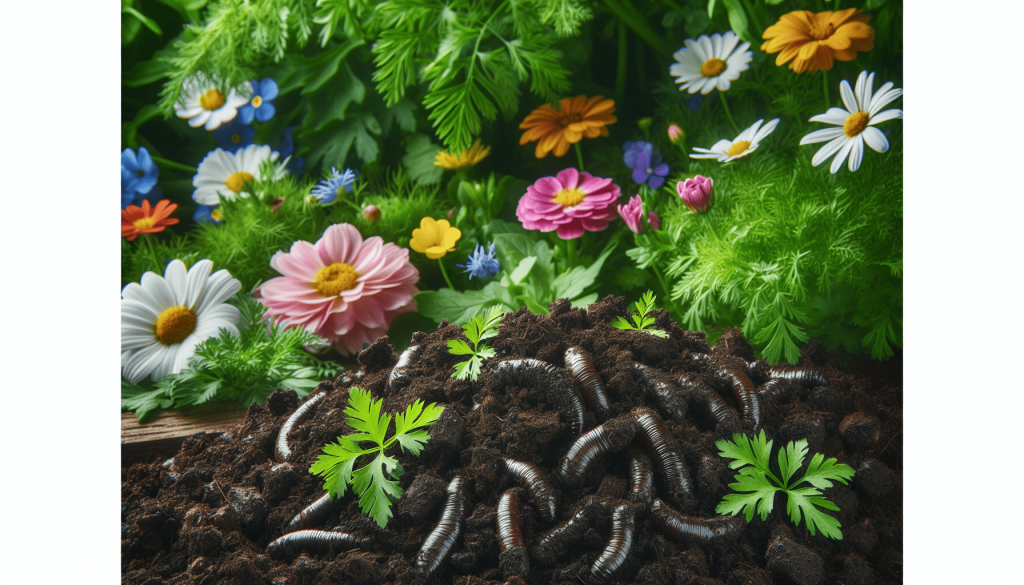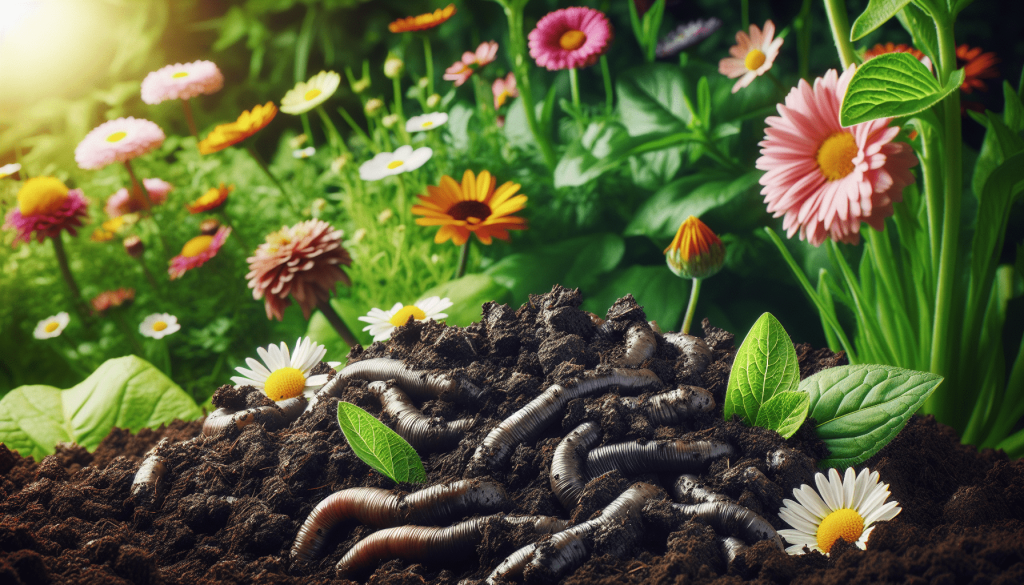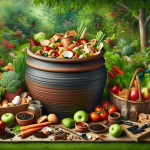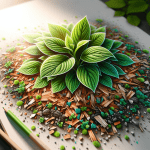This post may contain affiliate links. As an Amazon Associate, we may earn commissions from qualifying purchases.
Have you ever wondered what makes a flourishing garden truly thrive? If you’ve heard whispers about worm castings and their magical prowess, you’re in for a treat. Worm castings, also known as vermicast, are essentially worm poop—it’s as simple as that. Yet, this humble product can do wonders for your garden. So, what are the benefits of using worm castings in gardening? Let’s take a closer look.
What Exactly Are Worm Castings?
It may sound a bit gross, but don’t be put off! Worm castings are organic matter that has been digested by earthworms. Earthworms break down the food they consume, and what they excrete is incredibly rich in nutrients. You could think of it as compost on steroids.
Nutrient-Rich Powerhouse
Worm castings are packed with nutrients like nitrogen, phosphorus, and potassium. These are the basic building blocks of any thriving plant. But the magic doesn’t stop there. Castings are also loaded with micronutrients like calcium, magnesium, and sulfur. Each of these plays a unique role in plant health.
Beneficial Microbes
The digestive system of a worm is like a tiny ecosystem. As organic material passes through, it’s teeming with beneficial bacteria and microbes by the time it comes out the other end. These microorganisms are fantastic for soil health, improving its structure and nutrient availability.
How Do Worm Castings Benefit Your Plants?
Enhanced Growth
Using worm castings often results in healthier and more robust plants. The nutrients are in a form that plants can readily absorb. It’s like giving your garden a multivitamin specifically tailored to its needs.
Improved Soil Structure
Just as good food leads to better human health, enriched soil leads to better plant health. Worm castings help improve soil aeration and drainage. This is especially beneficial for those heavy clay or sandy soils that can be a nightmare to work with.
Moisture Retention
Since worm castings are organic matter, they help the soil retain moisture. This means you don’t have to water your plants as often, which saves you time and a bit on your water bill. Plus, your plants won’t be stressed out during those dry spells.

Environmentally Friendly Choice
Reduced Chemical Use
When you use worm castings, there’s less need for chemical fertilizers. Commercial fertilizers can lead to runoff that pollutes waterways. Worm castings offer an organic, sustainable alternative.
Promoting Biodiversity
Healthy soil is a complex ecosystem much like a rainforest. When you introduce worm castings, you’re promoting a more diverse and balanced microbial community. This, in turn, supports a wider range of soil organisms, like beneficial insects and fungi.
Economical Aspect
Long-Lasting Effects
While commercial fertilizers may offer a quick nutrient boost, their effects can be short-lived. Worm castings offer more lasting benefits. One application can continue to nourish your soil for months.
Cost-Effective
Believe it or not, you can even make your own worm castings. A small investment in a worm bin and some red wigglers can keep you supplied with a continuous stream of castings. If DIY isn’t your thing, buying in bulk can also be quite affordable.
| Benefit | Commercial Fertilizer | Worm Castings |
|---|---|---|
| Nutrient Availability | High | Immediate + lasting |
| Soil Improvement | Minimal | Substantial |
| Cost | Varies | Affordable |
| Chemical Runoff | Yes | No |

Practical Tips for Using Worm Castings
Application Rates
A little goes a long way. For most garden plants, mixing in about a half-inch layer of worm castings into the top few inches of soil is sufficient. For potted plants, you can mix in about 1 part worm casting to 4 parts potting soil.
Timing
Timing your application can make a difference. The best time to apply worm castings is right before planting and during the growing season. This ensures that your plants get a steady supply of nutrients.
Vermicomposting Basics
If you’re interested in making your own worm castings, it’s fairly straightforward. You’ll need a worm bin, bedding material like shredded newspaper, and a consistent supply of kitchen scraps. Keep the bin moist and within the temperature range of 55-77°F for optimal worm activity.
Troubleshooting
- Bad Odors: Check your bin’s moisture level and avoid overfeeding the worms.
- Worms Trying to Escape: This usually signals an issue like too much moisture, not enough food, or unfavorable temperatures.
Safer for Your Family and Pets
Many chemical fertilizers and pesticides can be harmful to both people and pets. Worm castings are completely organic and safe, minimizing the risk of accidental poisoning or harm.
Case Study
Jane’s Urban Garden
Jane lives in a tiny urban apartment but has always dreamed of a lush garden. She started using worm castings in her rooftop garden with surprising results. Her plants were healthier, her yield was higher, and she noticed she was watering less frequently. She even started a small worm bin under her kitchen sink to keep up with her garden’s demand. Jane found that not only did the worm castings improve her garden, but they also brought her a sense of accomplishment and connection to the natural world.
Different Ways to Use Worm Castings
As a Soil Amendment
Whether you’re planting a new garden or enriching an existing one, mixing worm castings into your soil is one of the best ways to reap their benefits.
As a Top Dressing
Sprinkle a layer of worm castings over your soil surface around plants and gently water. This method is great for established gardens and potted plants.
In Compost Tea
Compost tea is a liquid extract that contains microbial life and nutrients. Making a tea from worm castings can give your plants an additional nutrient boost. Mix worm castings with water, let it steep, and then use it to water your plants.
Seed Starter Mix
Mixing worm castings into your seed starter provides a nutrient-rich environment that gives new plants a strong start.
Organic Farming and Worm Castings
Compatibility with Organic Practices
Worm castings align perfectly with organic farming principles. They are free from synthetic chemicals and promote sustainable agricultural practices. When you use worm castings, you’re capitalizing on nature’s own processes to boost plant health.
Certification and Standards
If you’re farming on a larger scale and selling produce as organic, it’s good to know that worm castings meet the standards set by most organic certification bodies. Always check the specific guidelines relevant to your region.
Final Thoughts
Worm castings might not be the first thing you’d think of when considering garden amendments, but their benefits are hard to ignore. From improved plant growth to enhanced soil health and environmental sustainability, they truly are a gardener’s best friend. You can buy them or even produce them yourself at home. So the next time you’re planning your garden strategy, consider giving worm castings a try — your plants will thank you!








